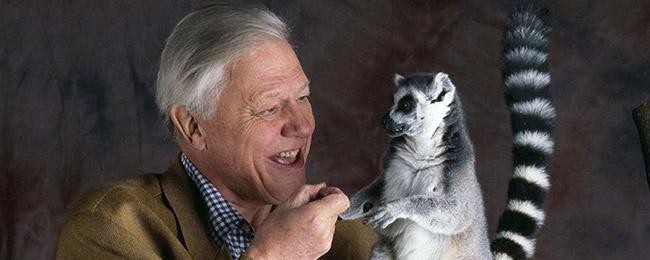David Attenborough had a brief spell with the navy before leaving to become an editor of children’s science textbooks. The work did not interest him much and he attempted to become a radio talk producer with the BBC, which did not materialize as he was rejected. However, his CV caught the attention of the head of “Talks” department of the BBC and although very inexperienced with television (he did not even own one at the time), he accepted to be trained for a three months course. Later on he became a producer of the “Talks” department.
His innings with natural history came about when he produced a three episode series called the “Pattern of Animals” which also accorded him the opportunity to meet the curator of London Zoo and together they decided to produce a documentary series on animal collection. This series was named “Zoo Quest” which became widely popular.
Later on BBC created a new department called the “Travel and Exploration Unit” which was handed over to Attenborough to run. He went on to produce popular series like Travelers’ Tales and Adventure Series.
In early 1960, Attenborough felt the need for a formal qualification in anthropology and took up a postgraduate degree in social anthropology at the London School of Economics. Later on, on an invitation to return to the BBC, he came back as Controller of BBC Two. However, he ensured that his contract specifically allowed him to continue making programs intermittently. And then came documentaries like “Bali”, and those on elephants in Tanzania.
Under his tenure as Controller of BBC Two, subjects like art, music, sport, drama, science and natural history began to thrive and prosper. He was an opportunist and a very astute man, as shown in his decision to broadcast a 13 episode series on “The history of western art,” just so that he could show off the quality of the new UHF color television service of BBC. Then came the 1969 “Civilization” which received universal acclaim.
Under his encouragement, BBC produced another acclaimed series called “Life on Earth.” He went on to become Director of Programs of BBC but the job did not interest him because it was world filled with board meetings and budget discussions and far removed from filmmaking. So, he left that post and got back to filmmaking and he became a freelancer broadcaster and soon the series “Eastward with Attenborough” was born. He returned to the “Life on Earth” series and soon gave it a quality that was to be the standard to meet in any future wildlife filmmaking.
Intense research and treatment of the subject seriously was a characteristic that made all Attenborough’s work unique and of great quality. His stature by then was such that even the scientific community accorded him a respect that was not given to many filmmakers. Another great quality about Attenborough was that although he was a famous presenter by then, he made sure that the subject of his film got maximum camera attention. Not by design, but by sheer coincidence, Attenborough had managed to make films about every group of animals and plants on earth. The following is the way he summed up his achievements:
“The evolutionary history is finished. The endeavour is complete. These programmes tell a particular story… I do hope that if people watch it in 50 years’ time, it will still have something to say about the world we live in”.



